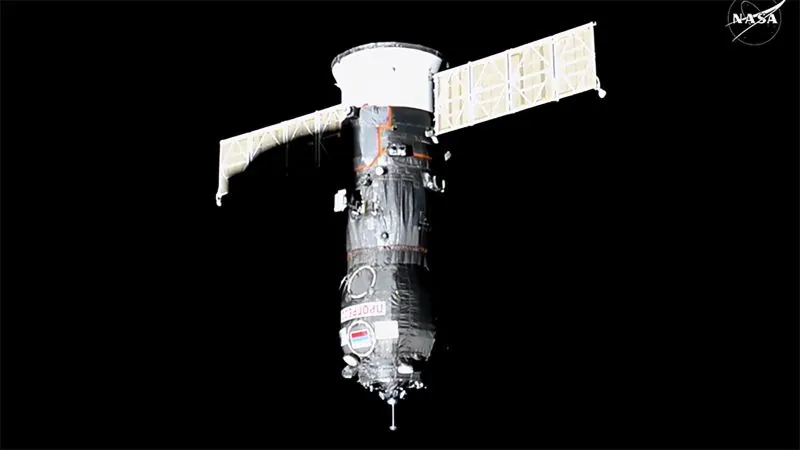
Astronauts Scramble After ‘Unusual Odor’ Disrupts Russian Module on Space Station!
2024-11-26
Author: Lok
Unusual Odor Disrupts Russian Module
In a startling turn of events aboard the International Space Station (ISS), Russian cosmonauts were compelled to temporarily seal off a module this weekend due to an ‘unusual odor’ coming from the Progress 90 cargo spacecraft, NASA reported. This incident stirred immediate concern among crew members and ground control, though authorities have confirmed that there is no danger to the astronauts.
NASA's Analysis on the Situation
NASA communication indicated that the unusual scent, along with observed droplets, likely stemmed from “outgassing from materials inside the Progress spacecraft.” Outgassing occurs when materials release gas into space upon exposure to its harsh environment, where conditions can swing dramatically from 250 degrees Fahrenheit to minus 250 degrees Fahrenheit. NASA’s Kelly O. Humphries reassured that the propellant—which consists of unsymmetric-dimethylhydrazine and nitrogen tetroxide, both of which are toxic—is not likely the source of the issue.
Swift Actions and Safety Protocols
“Fortunately, the odor dissipated quickly,” said Humphries, noting that cargo transfer operations continued without delay despite the alarming discovery. The Progress capsule, which had recently arrived at the ISS after a launch from Kazakhstan, delivered approximately three tons of essential supplies, including food and fuel crucial for the ongoing missions.
Maintaining Air Quality
The crew's swift actions included shutting the hatch connecting the 16-foot-long Poisk module to the rest of the station, while ground teams activated air scrubbing systems to ensure the environment remained safe. Fortunately, subsequent tests confirmed that air quality within the ISS had returned to normal.
Context of Ongoing Issues
In a broader context, this incident adds another layer to the already complex narrative surrounding the Russian modules of the ISS. The Zvezda service module has been under scrutiny due to a slow air leak, hindering full access for astronauts.
The ISS: A Collaborative Endeavor
The ISS itself is a unique diplomatic and scientific achievement, bringing together astronauts from over 20 nations. NASA along with its international partners—including Roscosmos, the European Space Agency, and the Japan Aerospace Exploration Agency—plan to continue utilizing the ISS through at least 2030.
Conclusion: A Reminder of the Challenges of Space Exploration
As space exploration endeavors continue, incidents like the one involving the Progress spacecraft serve as a reminder of the unpredictable challenges encountered beyond our planet. Stay tuned as we follow this story and others like it in our quest to unlock the mysteries of the universe!



 Brasil (PT)
Brasil (PT)
 Canada (EN)
Canada (EN)
 Chile (ES)
Chile (ES)
 España (ES)
España (ES)
 France (FR)
France (FR)
 Hong Kong (EN)
Hong Kong (EN)
 Italia (IT)
Italia (IT)
 日本 (JA)
日本 (JA)
 Magyarország (HU)
Magyarország (HU)
 Norge (NO)
Norge (NO)
 Polska (PL)
Polska (PL)
 Schweiz (DE)
Schweiz (DE)
 Singapore (EN)
Singapore (EN)
 Sverige (SV)
Sverige (SV)
 Suomi (FI)
Suomi (FI)
 Türkiye (TR)
Türkiye (TR)